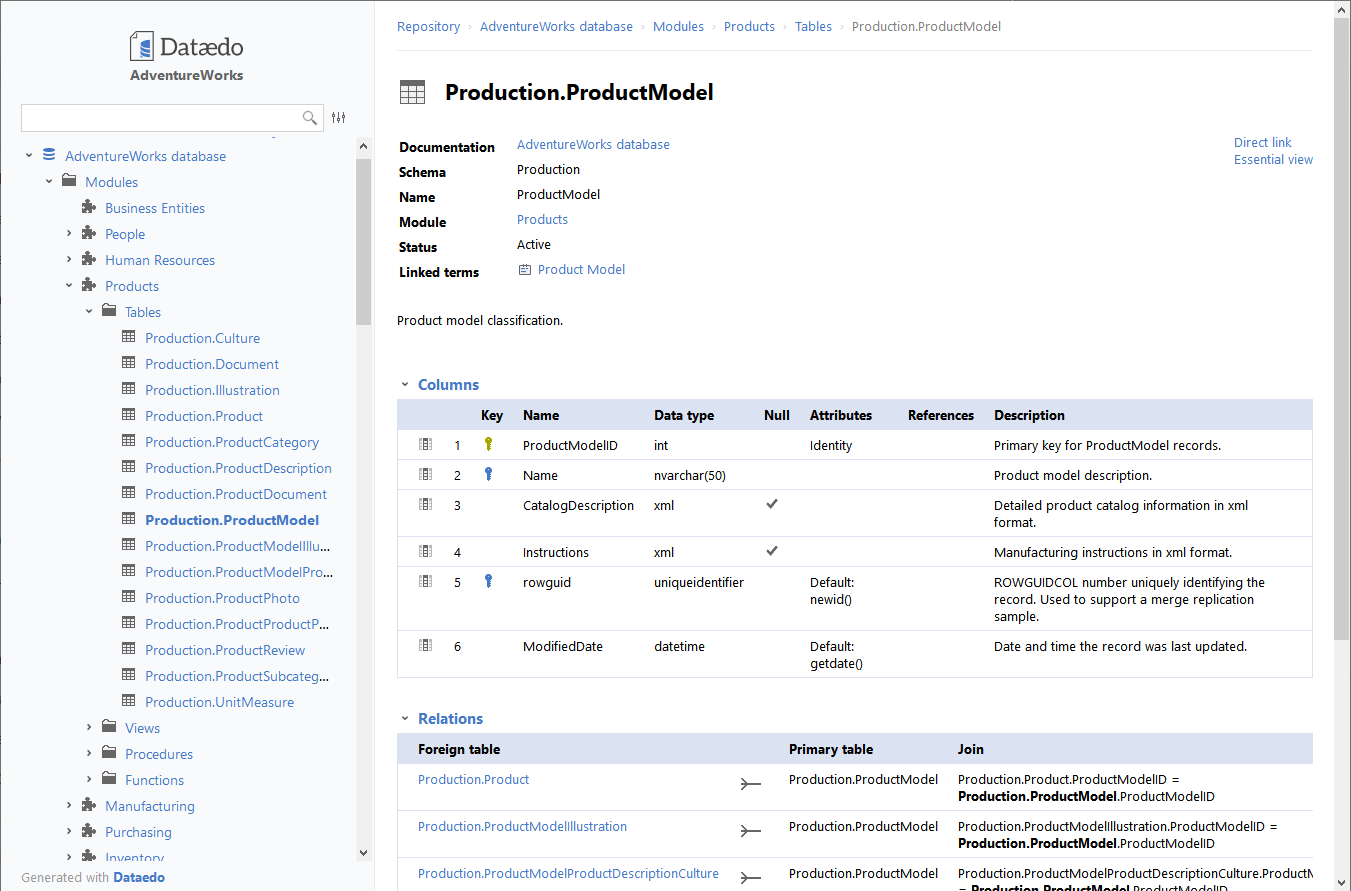Query below returns foreign keys defined in a database.
Query
SELECT ChildDB || '.' || ChildTable as ForeignTable,
'>-' as Rel,
ParentDB || '.' || ParentTable as PrimaryTable,
TRIM(TRAILING ','
FROM XMLAGG(ChildKeyColumn)(varchar(1000)))
AS ForeignColumns
FROM DBC.All_RI_ChildrenV
WHERE ChildDB NOT IN ('All', 'Crashdumps', 'DBC', 'dbcmngr',
'Default', 'External_AP', 'EXTUSER', 'LockLogShredder', 'PUBLIC',
'Sys_Calendar', 'SysAdmin', 'SYSBAR', 'SYSJDBC', 'SYSLIB',
'SystemFe', 'SYSUDTLIB', 'SYSUIF', 'TD_SERVER_DB', 'TDStats',
'TD_SYSGPL', 'TD_SYSXML', 'TDMaps', 'TDPUSER', 'TDQCD',
'tdwm', 'SQLJ', 'TD_SYSFNLIB', 'SYSSPATIAL')
GROUP BY ForeignTable,
PrimaryTable
ORDER BY ForeignTable,
PrimaryTable;
Columns
- ForeignTable - foreign table database and name
- Rel - relationship symbol implicating direction
- PrimaryTable - primary (rerefenced) table database and name
- ForeignColumns - list of FK colum names, separated with ","
Rows
- One row represents one foreign key. If foreign key consists of multiple columns (composite key) it is still represented as one row.
- Scope of rows: all foregin keys in a database
- Ordered by foreign database name and table name
Sample results

You could also get this
Get this interactive HTML data dictionary in minutes with Dataedo.












 Bart Gawrych
Bart Gawrych